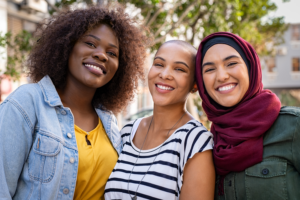Tag: women

Gain Brand Momentum through Women’s Passion Points
Learn how Women engage with Passion Points of food, home décor, travel, fashion, and more.

Score Big with Consumers by Leaning into Women’s Sports
From skyrocketing fan attention to revenue, women’s sports and athletes represent a tidal wave of opportunity for brand marketers.

How to Engage Women across the Political Spectrum
To gain additional trust and secure Relevance, take time to understand how Women's political beliefs, values, and identities shape their choices and decisions

Boomers Donate to Religious and Child Health Causes; Men Lead in Charitable Donations
Two new Collage Group studies exam charitable giving across age and gender, revealing key cultural trends for organizations to act on to enhance charitable donations. Learn more about how Boomers donations vary vs. younger generations, as well as how men compare to women.

The Top Brands for Women: Learnings, Activations and More
Leading brands leverage culture efficiently and effectively to connect across consumer segments. Discover the top culturally fluent brands for Women and get insights into what these brands are doing to resonate.

Insights for Authentically Engaging Women Consumers for Growth
Many advertisers are missing the mark in their portrayals of this powerful consumer segment. Only about half of Women say they’re satisfied with portrayals of their gender in advertising. Learn more about how you can engage Women consumers’ evolving, complex identities for growth.

Engage & Celebrate Women: A Conversation About Gender Equity
Learn how women leaders of Pernod-Ricard, Lincoln Financial, and Adsmovil discuss how to engage and celebrate women consumers.

Drive Brand Relevance with Women Consumer Essentials
Discover women’s unique perspectives and motivations through their evolving, complex identities and actionable Group Traits.